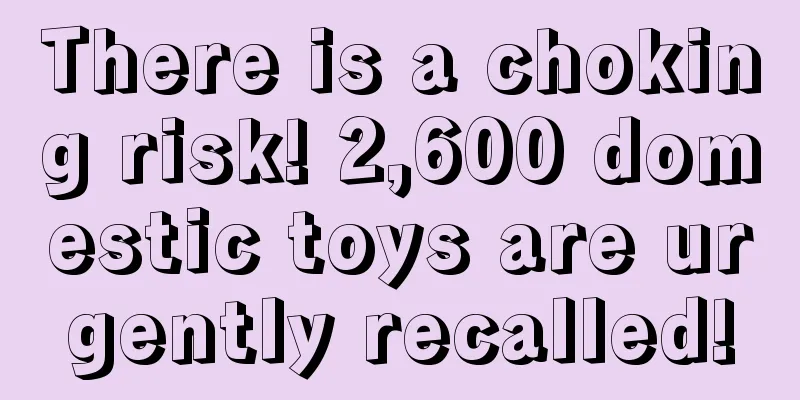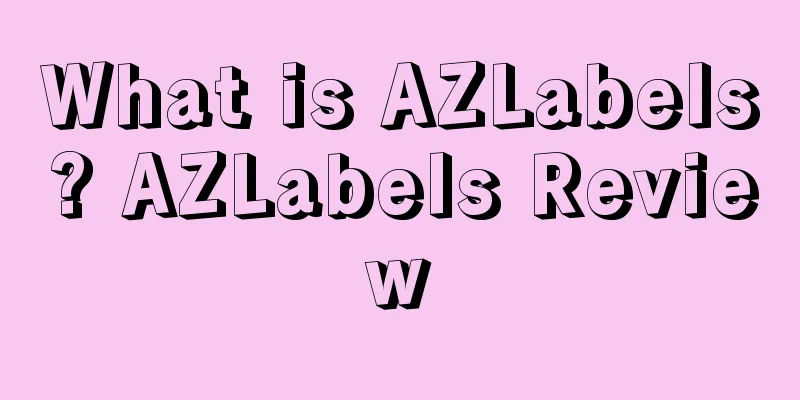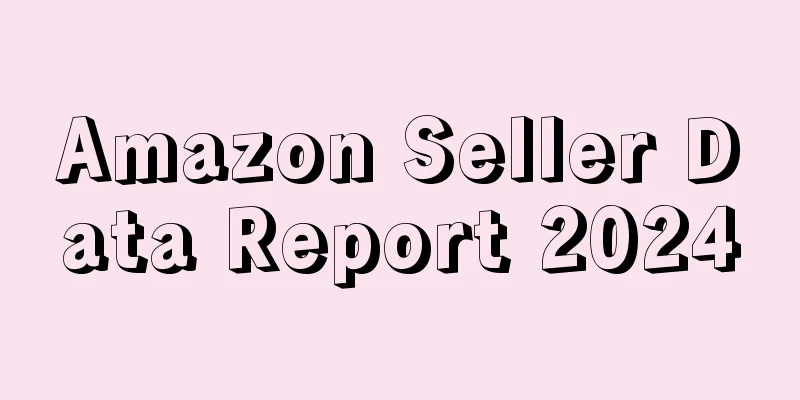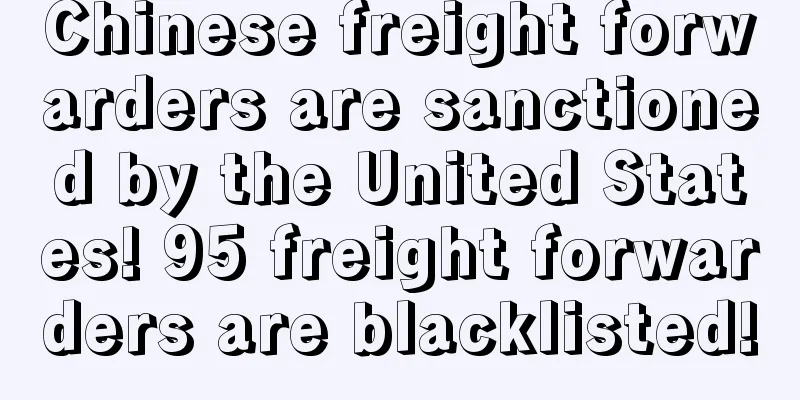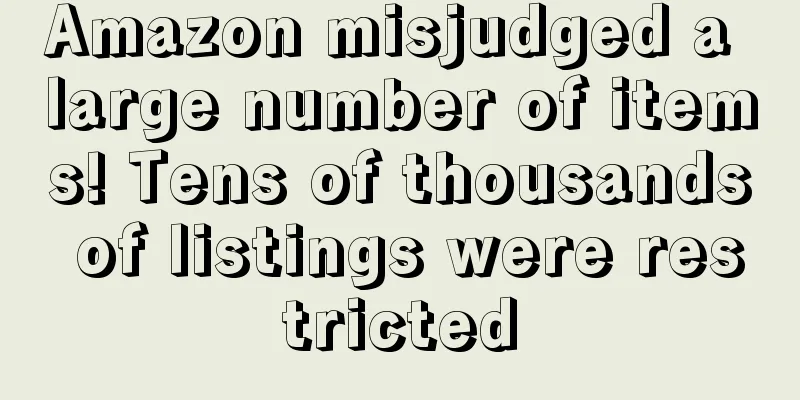Sensitive words have made a comeback and a large number of sellers’ listings have been removed from the shelves. Who is to blame this time?
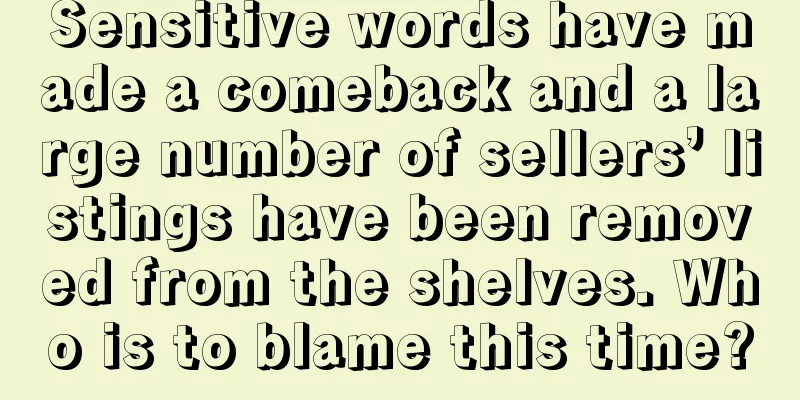
|
Recently, many sellers have complained that they did not receive any notifications and their detail pages were removed from the shelves for no reason. Some sellers even complained: The goods are at sea and the link is useless. What should we do if we cannot put the goods into storage? ▲ The picture comes from the seller communication group When the editor further inquired about the reasons, many sellers said that it was because the keywords or details pages contained sensitive words , and the products that were originally sold normally were suddenly judged to be pesticides, pesticide products, and drugs.
In fact, as early as May, some sellers were deemed to be anti-epidemic supplies for selling clothing, tissues, and cotton pads that had nothing to do with anti-epidemic supplies and were removed from the shelves. Now, sensitive words such as insecticides and pesticides have made a comeback. Is it because of malicious additions by competitors, Amazon's misjudgment, or the seller's own operational errors? How to solve this problem?
Recently, a clothing seller on the US site said that his products were judged to be drug-making supplies, and he did not receive any notifications or emails. Amazon did not even give him an appeal button!
After consulting Amazon customer service, the seller received a reply: This product has been confirmed to be coca leaves or contain coca leaves. Coca leaves are prohibited from being sold and listed on Amazon.
There are many sellers who have encountered such situations. After investigating the reasons, they found that the links of many sellers' US sites were transferred by competitors to Canadian and Mexican sites that were not sold simultaneously. The titles were changed to drug-sensitive words such as coca leaves, antiviral, and fungal, which led to the listings on the corresponding sites being restricted, and the products on the US site were also removed from the shelves.
Coincidentally, another clothing seller on the forum said: There is a listing that sends a small red flag every day, and a sensitive word like coca leaves, Hawaiian baby Woodrose seeds, etc. will be added to the product listing the next day. After contacting customer service to delete a sensitive word, another sensitive word will appear in other attributes!
After checking with the service provider, it was not a spoof by the VC account. The service provider suspected that it was an SC account that performed the operation by merging. Now I dare not ask the service provider to restore it, for fear that sensitive words will be added again after the restoration!
For this situation, some sellers provide a solution: 1. You can authorize the brand registration of the US site to Canada and Mexico, and take the editing rights of the listing into your own hands. 2. If you think filing is too troublesome, you can occasionally search for the ASIN number of your product on other sites that are not selling the product simultaneously. If you find your listing, you can directly file a complaint against the seller. It can be seen that there are a lot of disputes before the peak season, and the seller's listings will be removed from the shelves due to various external reasons. In addition to carefully checking their own detail pages, sellers can also pay more attention to whether their products are being copied and sold on other sites. If found, they must be dealt with in a timely manner.
In addition to peers maliciously adding sensitive words, many sellers were also hit without any effort and directly suffered from Amazon's misjudgment.
In the seller communication group, many sellers said that their products have nothing to do with insecticides and pesticides, and they have already avoided related sensitive words, but they were still unfortunately hit. They speculated that it was a misjudgment by Amazon.
▲ The picture comes from the seller communication group After being misjudged, some sellers opened a case and consulted customer service, but the answer they got was that "waterproof" is a sensitive word.
Another customer service representative said: sensitive words are mold, clean, dust, safe... So one seller complained: If you can’t write all these, you might as well just block all 26 letters!
Of course, it was later confirmed that the seller encountered unreliable customer service. Different customer service staff found different sensitive words. The seller deleted until only the keywords were left, and still could not recover. Later, he met a professional customer service who checked the listing and found out that it was another problem that was solved.
If finding sensitive words through Amazon customer service is a random event, then sellers need to first check their own listings for sensitive words. So what are the sensitive words that sellers need to pay attention to?
Weibo blogger @AMZ-Xiaomei shared a reference of sensitive words for pesticides: Pesticide sensitive word reference Anti-mites Disinfect/Sterilize germs/bacteria repel insects repel insects Safe Inhibit-Algae Anti-Bacteria Stop-Microbe/Mildew DestroyFungal/Fungus Repel-Pesticides Antifungal Sanitize-Blight Antivirus non-poisonous non-injurious harmless non-toxic all natural Non-slip Anti-Fouling Easy cleaning Heat-resistant Flame retardancy Wear-resisting Not fade remove allergens prevent bacteria prevent bacteria Antibacterial mildew resistant Anti-flu Ultraviolet light/UV Breathable Biodegradable eco-friendly Durable Reusable wash Air Pollution prevent breathe Environmental Eliminate prevent Protect ▲ (Slide the right scroll wheel to view) In addition to the above words, the editor also attached the customer service version of sensitive words for sellers to refer to↓↓↓
▲ Sensitive words that are easily mistakenly killed Of course, some sellers in the kitchen category said that they are also using the above-mentioned words such as "healthy, environmentally friendly, and anti-slip", and have not encountered the problem of being convicted of pesticides, so everyone should refer to it based on the situation of their own products.
What should I do if a link is mistakenly identified as a pesticide product? How should I file a complaint? What information do I need to provide?
▲ The picture comes from the seller communication group In fact, the idea is very simple: find out the sensitive words - delete them using templates - upload and refresh - resolve the misjudgment and retrieve the listing.
1. Confirm sensitive words and delete them First, the seller must confirm whether the above or related sensitive words appear in their listings. If so, they need to delete these sensitive words in the table properties.
If no sensitive words are found, fill in the empty spaces in the table, because it is possible that sensitive words have been added to the hidden attributes.
Sellers are advised to use category templates to update to avoid Amazon capturing other people's incorrect contributions because a certain attribute does not contribute. Template updates may result in errors, which can be ignored. Generally, ASIN will automatically recover after 2-3 hours. If it still does not recover, please contact seller support to apply for ASIN review or write an email to the listing review team to appeal and update for re-review.
Complaint email: [email protected] Normally it takes at least 2-3 days.
2. Download classification templates in the background Download the classification template from the background and try to fill in all attribute fields without sensitive words. Delete the marked ASIN in the background first, and then upload the form in the batch upload template; the ASIN and SKU should still be filled in with the original ones without any changes.
For detailed graphic steps, please refer to the previous article "Amazon is really wrong this time! The culprit of the pesticide incident turned out to be..."
The above is the analysis and countermeasures of the recent sensitive word incident. I hope that the sellers can get their listings back through the relevant methods and steps in this article.
Finally, I would like to remind sellers again: the peak season is coming, everyone must always pay attention to the safety of product links and stores, and do a good job of investigation to avoid various external factors that may cause links to be removed from the shelves or even store closures. At the same time, sellers must also make relevant preparations for the peak season to welcome the explosion of orders~ Text ✎ Xiyue/ Statement: When reprinting this article, the title and original text must not be modified, and the source and original link must be retained. |
Recommend
Amazon's order volume plummets! Sellers: It's all due to the new regulations
A while ago, sellers were still heatedly discussi...
What is RMA (Return Material Authorization)? RMA (Return Material Authorization) Review
RMA is the abbreviation of Return Material Authori...
The most comprehensive Amazon brand registration tutorial in history (collection)
How to register a brand? Amazon Brand Registratio...
Shopify and Roposo join forces to support content creators to build online stores!
It is learned that according to foreign media repo...
Six pitfalls of being an Amazon employee!
text The first pitfall: black technology Due to h...
What is Whale ERP? Whale ERP Review
Jingsheng ERP was founded in 2018 and is an e - co...
(Internal gameplay) This set of operating methods is suitable for daily sales of thousands of orders
Strategy 1 1. After the new product is launched, i...
Millions of dollars in arrears in payments, the old freight forwarding company announced its bankruptcy!
In recent years, the freight forwarding circle has...
Germany's second-largest seller was also banned! The United States has just introduced the most stringent anti-counterfeiting measures for cross-border e-commerce
There is a saying circulating among cross-border s...
What is Lelong.my? Lelong.my Review
Lelong.my is the oldest e-commerce platform in Mal...
Temu sues 20 fake websites in the US
It is learned that according to the South China Mo...
Amazon new product promotion process example
By giving this process as an example, newcomers c...
What is MyYearbook? MyYearbook Review
MyYearBook is the third largest social networking ...
Get these 10 novel dropshipping products in 2019 to start a new year of wealth
<span data-shimo-docs="[[20,"代发货卖家们看这里!20...
Following the epidemic prevention materials, a new hot product is emerging?
Overnight, information about helmets flooded the ...
